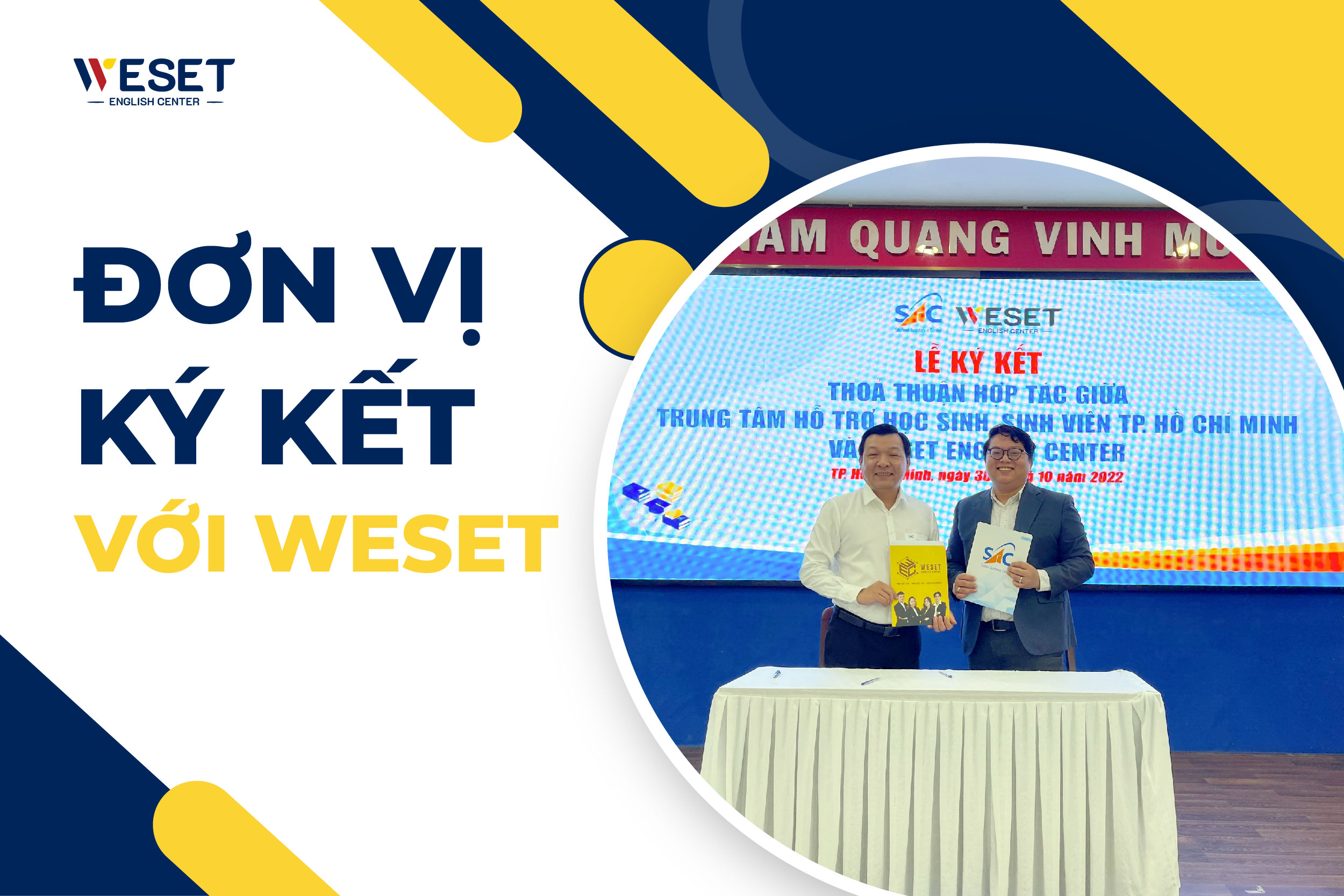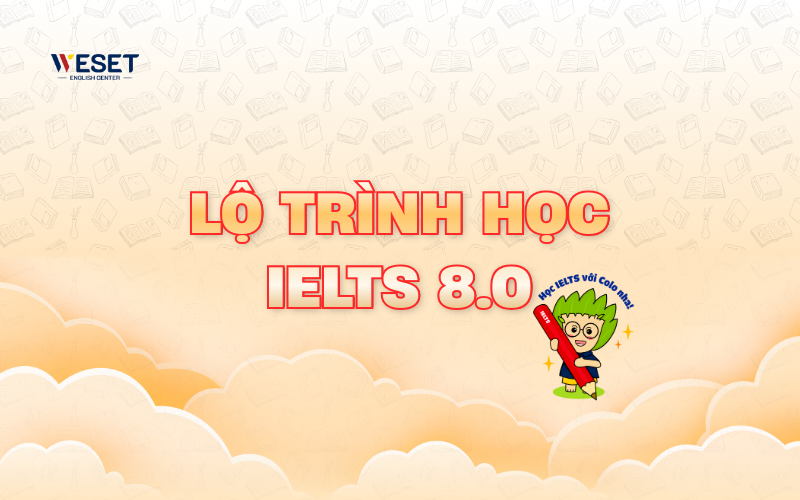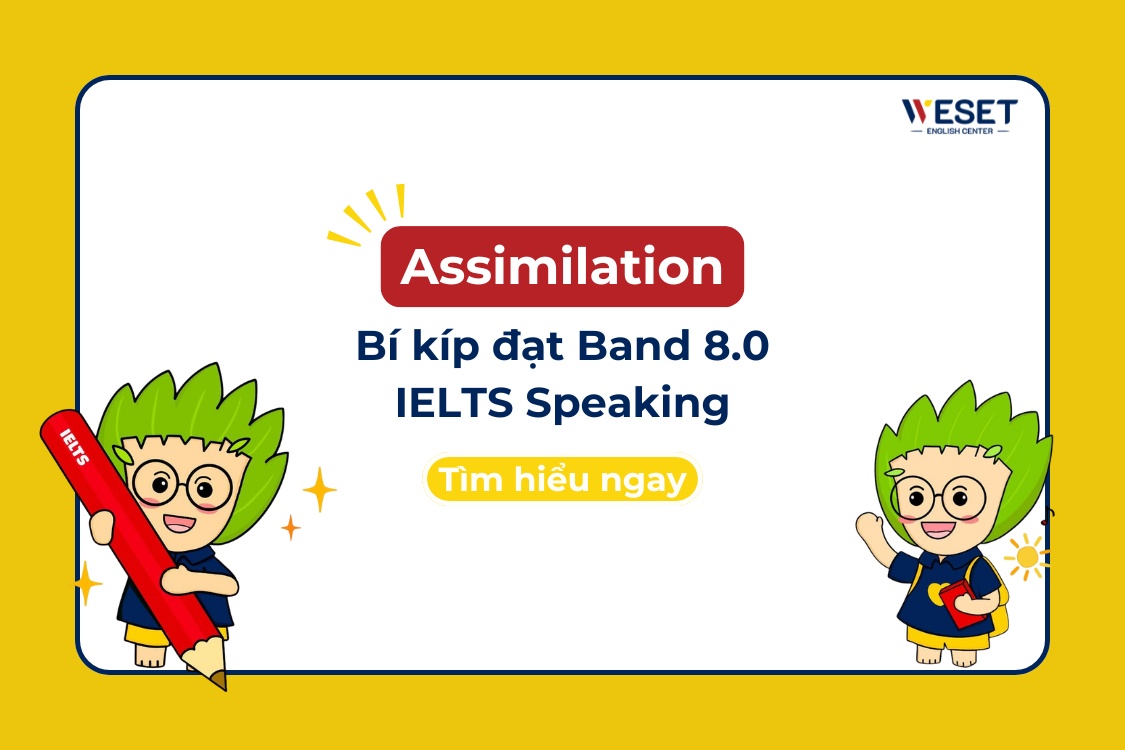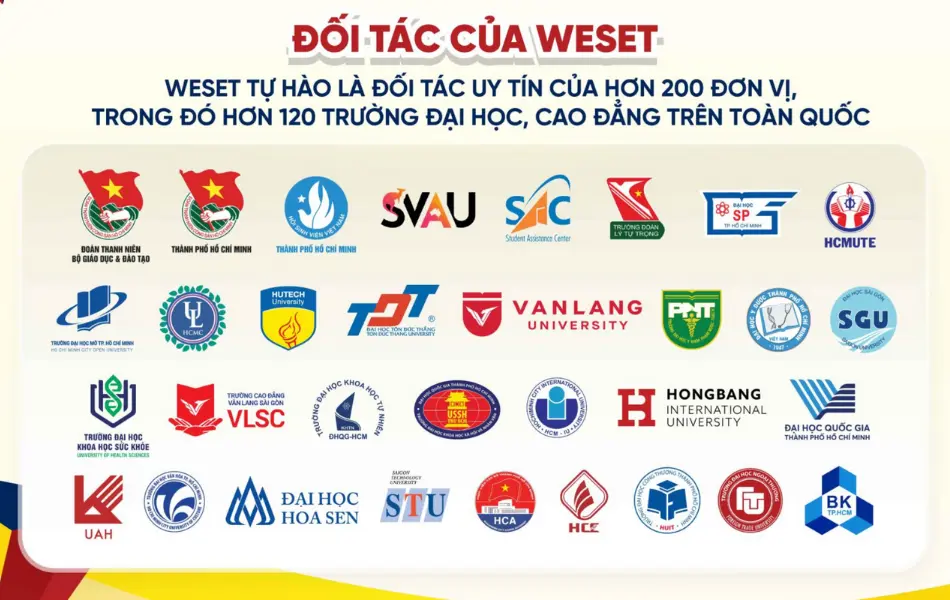Trang chủ Blog Bài thi IELTS mẫu IELTS Speaking Study – Part 1, 2 & 3 Sample
IELTS Speaking Study – Part 1, 2 & 3 Sample
- Jonathan M. Pham
- Bài mẫu IELTS Sample Speaking, Bài thi IELTS mẫu
MỤC LỤC
Học tập (Study) là một chủ đề gần gũi với tất cả mọi người chúng ta – đặc biệt các bạn học sinh sinh viên. Bên cạnh đó, đây cũng là một chủ đề thường xuất hiện trong bài thi nói IELTS. Hôm nay, hãy cùng WESET tìm hiểu thêm về topic IELTS Speaking Study – cách làm và bài mẫu cụ thể cho cả 3 part bạn nhé!
IELTS Speaking Study – Part 1
Q1: Do you enjoy studying?
A1: Absolutely! I find studying to be an enriching and rewarding experience. It allows me to broaden my knowledge, enhance my skills, and achieve my academic goals. I genuinely enjoy the process of learning and exploring new subjects.
Q2: How often do you study?
A2: I study on a daily basis. I believe consistency is key when it comes to learning, so I make it a habit to allocate a certain amount of time each day for studying. Whether it’s reviewing class materials, reading textbooks, or doing research, I try to maintain a regular study routine.
Q3: Where do you prefer to study?
A3: Personally, I prefer studying in a quiet and peaceful environment where I can concentrate and focus without any distractions. Therefore, I usually study in the library or in my room. These places provide the tranquility and solitude necessary for effective studying.
Q4: How do you prepare for exams?
A4: When preparing for exams, I follow a systematic approach. Firstly, I review my class notes and organize them in a structured manner. Then, I create a study schedule, allocating specific time slots for each subject or topic. I also make use of additional resources such as textbooks, online tutorials, and practice exams. Lastly, I regularly engage in revision sessions to reinforce my understanding and to identify any areas that require further attention.
Q5: What are the benefits of studying?
A5: Studying brings numerous benefits. Firstly, it expands our knowledge and understanding of the world around us. Secondly, it helps us develop critical thinking and problem-solving skills, which are essential for personal and professional growth. Additionally, studying equips us with the necessary qualifications and expertise required for our chosen careers. Overall, studying opens doors to new opportunities and broadens our horizons.
Q6: What is your preferred method of studying?
A6: My preferred method of studying is a combination of reading, note-taking, and active engagement. I begin by reading textbooks and relevant materials, taking comprehensive notes along the way. This helps me to absorb the information better. Then, I engage in active learning techniques, such as summarizing the content in my own words, discussing concepts with classmates, or teaching the material to someone else. These methods enhance my understanding and retention of the subject matter.
IELTS Speaking Study – Part 2
Q: Describe a memorable experience you had while studying. You should say:
- Where and when this happened
- What you were studying
- Why it was memorable, and
- How it influenced your attitude towards studying
A: One of the most memorable experiences I had while studying occurred during my final year of university. It was in the library of my campus, during the intense preparation period for our end-of-semester exams.
At that time, I was deeply engrossed in studying for my major subject, which was psychology. The course required a comprehensive understanding of complex theories and concepts, and the exams were known to be particularly challenging. I was determined to excel in this subject as it was my passion and I had invested a significant amount of time and effort in it.
What made this experience truly memorable was the group study session I organized with my classmates. We all shared the same goal of achieving high grades, and we decided to combine our knowledge and support each other during the revision process. We spent countless hours in the library, discussing theories, solving practice questions, and clarifying doubts. The energy and camaraderie within our group were remarkable.
This experience was memorable for several reasons. Firstly, it highlighted the power of collaboration and teamwork. We discovered that studying together not only enhanced our understanding of the subject matter but also boosted our motivation and confidence. We were able to approach complex topics from different perspectives and learn from one another.
Moreover, this experience taught me the importance of seeking help and support when needed. Previously, I had been quite hesitant to ask for assistance, fearing that it might be perceived as a weakness. However, during this study session, I realized that learning is an active and collaborative process. By reaching out to my classmates and forming a supportive study group, I was able to overcome my academic challenges more effectively.
This memorable experience profoundly influenced my attitude towards studying. It transformed my perspective from considering studying as a solitary and burdensome task to viewing it as an opportunity for growth and connection. I became more open to seeking help and engaging in collaborative learning environments. Furthermore, it made me appreciate the value of teamwork and the collective power of shared knowledge.
Overall, this memorable experience during my intense psychology study session not only enriched my understanding of the subject but also left a lasting impact on my approach to studying. It taught me the significance of collaboration, support, and the continuous pursuit of knowledge.
IELTS Speaking Study – Part 3
Q1: How has the way people study changed over the years?
A1: The way people study has undergone significant changes over the years, primarily due to advancements in technology. In the past, studying relied heavily on traditional methods such as books, libraries, and handwritten notes. However, with the advent of the internet and digital resources, studying has become more accessible and flexible. Nowadays, students can access a vast amount of information online, engage in interactive learning platforms, and collaborate with peers across the globe. This shift has made studying more convenient and has opened up new avenues for self-directed learning.
Q2: What are the advantages and disadvantages of studying online?
A2: Studying online offers several advantages. Firstly, it provides flexibility and convenience, allowing students to learn at their own pace and in their preferred environment. Online courses often offer a wide range of subjects and are accessible from anywhere, eliminating the need for physical attendance. Additionally, online studying fosters independent learning and self-discipline. However, a potential disadvantage is the lack of face-to-face interaction with teachers and peers, which can hinder the development of social and communication skills. Moreover, online studying requires strong self-motivation and time management skills to avoid distractions and maintain focus.
Q3: How can schools and universities promote effective studying habits among students?
A3: Schools and universities can play a vital role in promoting effective studying habits. Firstly, they can provide students with study skills workshops or courses that teach techniques such as note-taking, time management, and critical thinking. Additionally, educational institutions can create a conducive learning environment by offering well-equipped libraries, study spaces, and access to resources. Encouraging collaborative learning through group projects and discussions also fosters effective studying. Furthermore, regular feedback and support from teachers can motivate students and guide them towards better study habits.
Q4: Is it more beneficial to study alone or in a group?
A4: Both studying alone and in a group have their benefits. Studying alone allows for individual focus and concentration, enabling students to tailor their study methods to their specific needs. It also promotes self-reliance and independent thinking. On the other hand, studying in a group provides the opportunity for collaborative learning and sharing of ideas. Group study sessions can help clarify difficult concepts, stimulate discussions, and provide different perspectives on the subject matter. Ultimately, the choice between studying alone or in a group depends on personal preferences and the nature of the material being studied.
Q5: How important is discipline when it comes to studying?
A5: Discipline is crucial when it comes to studying. It plays a significant role in maintaining consistency, managing time effectively, and staying focused on the learning objectives. Studying often requires dedication, perseverance, and the ability to resist distractions. Without discipline, it becomes challenging to adhere to study schedules, complete assignments on time, or persevere through difficult topics. Developing strong study habits and maintaining discipline allows students to make the most of their study time and achieve better academic outcomes.
Từ vựng topic IELTS Speaking Study
| English | Vietnamese |
|---|---|
| Study | Học |
| Learning | Học tập |
| Academic | Học thuật |
| Knowledge | Kiến thức |
| Skills | Kỹ năng |
| Exam | Kỳ thi |
| Class | Lớp học |
| Textbook | Sách giáo trình |
| Library | Thư viện |
| Notes | Ghi chú |
| Revision | Ôn tập |
| Review | Đánh giá |
| Understanding | Hiểu biết |
| Concentration | Tập trung |
| Collaboration | Sự cộng tác |
| Group study | Học nhóm |
| Online learning | Học trực tuyến |
| Flexibility | Tính linh hoạt |
| Independent | Tự học |
| Motivation | Động lực |
| Discipline | Kỷ luật |
| Time management | Quản lý thời gian |
| Self-directed | Tự hướng |
| Critical thinking | Tư duy phản biện |
| Resources | Tài liệu |
| Workshop | Hội thảo |
| Conducive | Thuận lợi |
| Feedback | Phản hồi |
| Study habits | Thói quen học |
| Distractions | Sự xao lạc |
| Study schedule | Lịch học |
| Academic outcomes | Kết quả học tập |
Lời kết
Hy vọng với những hướng dẫn trên đây, bạn đọc sẽ có cơ hội làm quen và tự tin hơn khi đối mặt với topic IELTS Speaking Study. Đừng quên luyện tập thật nhiều để thành thạo và trình bày trôi chảy hơn mỗi ngày bạn nhé!
Tham khảo thêm thư viện bài mẫu IELTS của WESET – tổng hợp từ các đề thi Speaking & Writing qua các năm, dựa theo các topic thường được ra nhất!
Sample Speaking theo các chủ đề khác:







